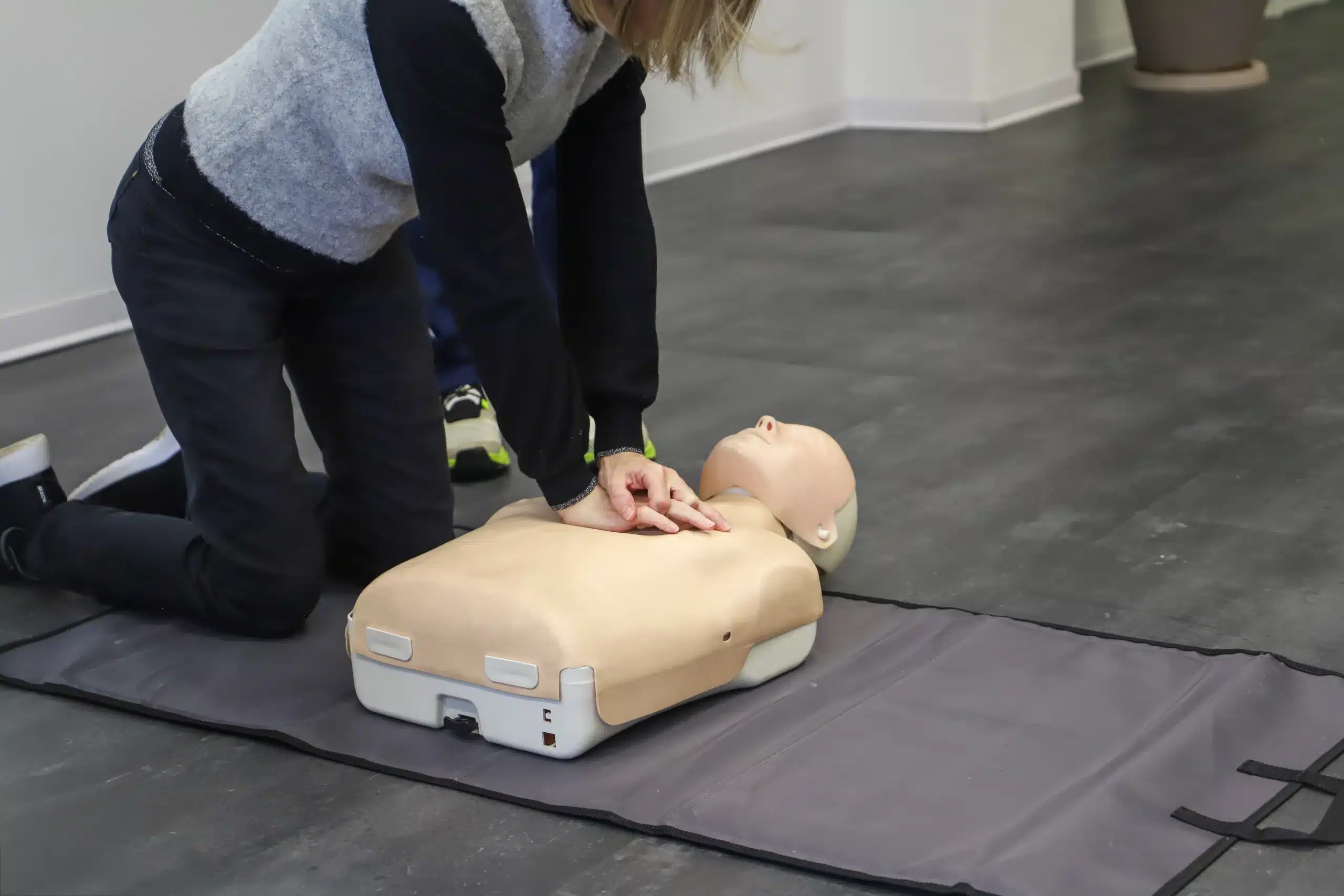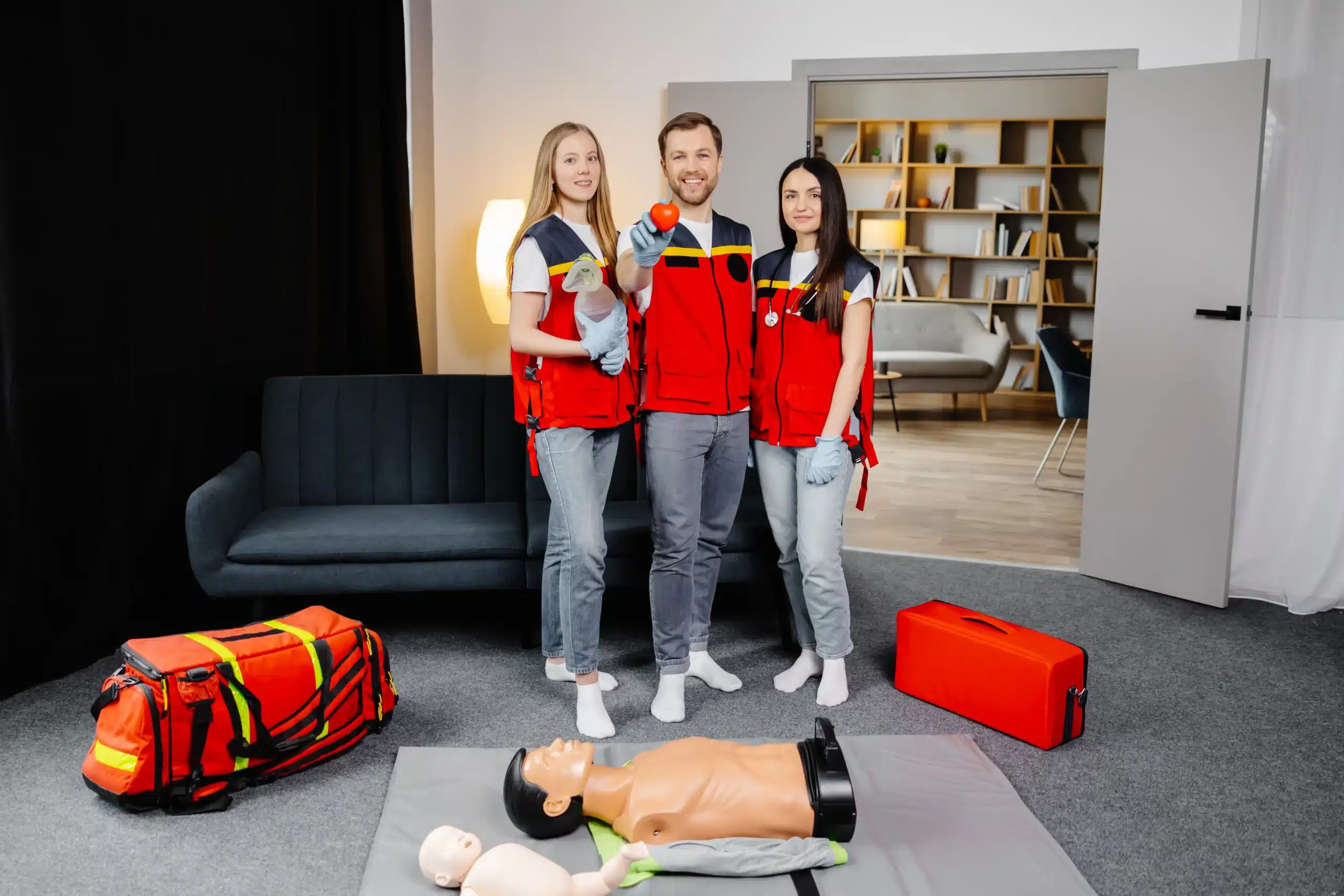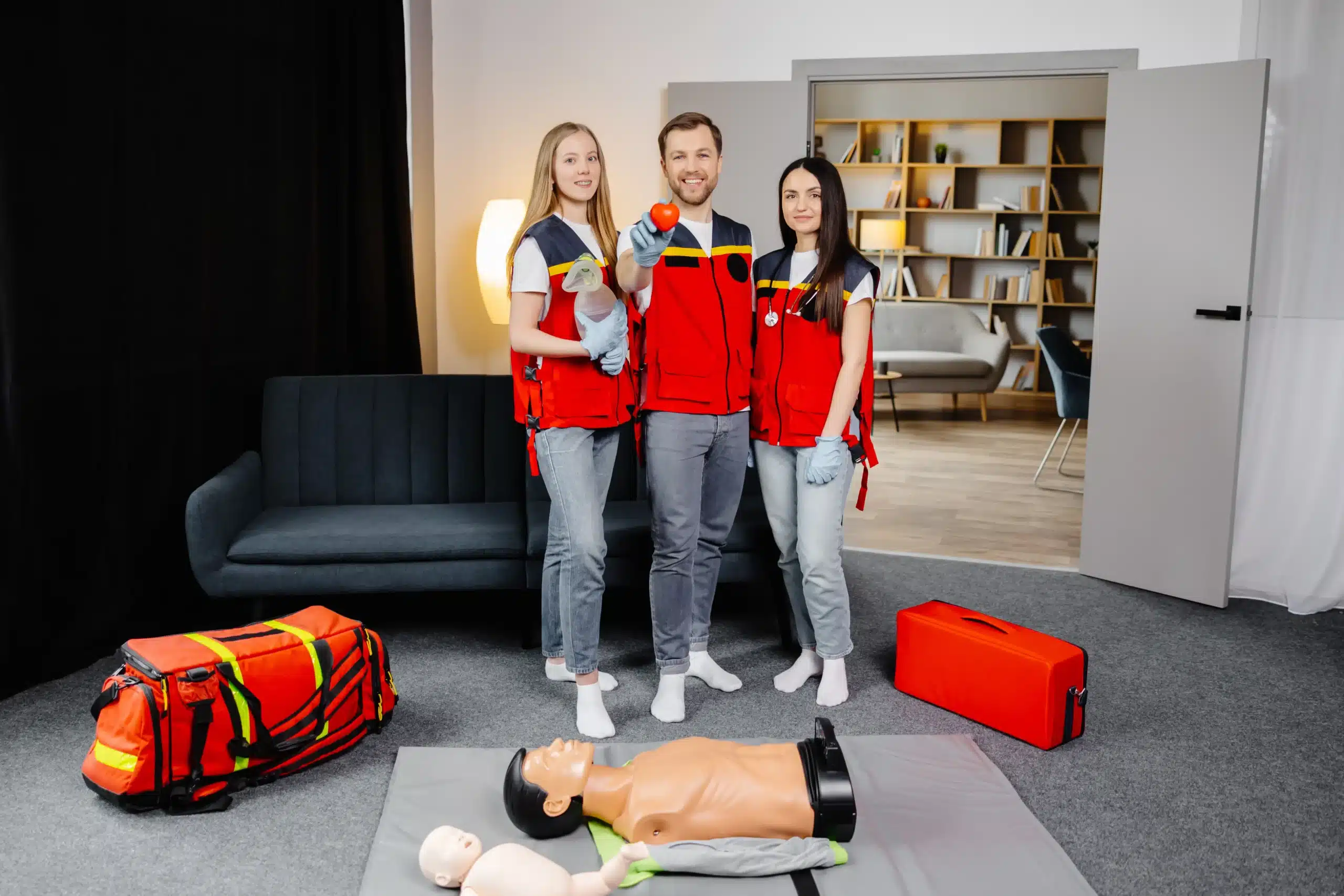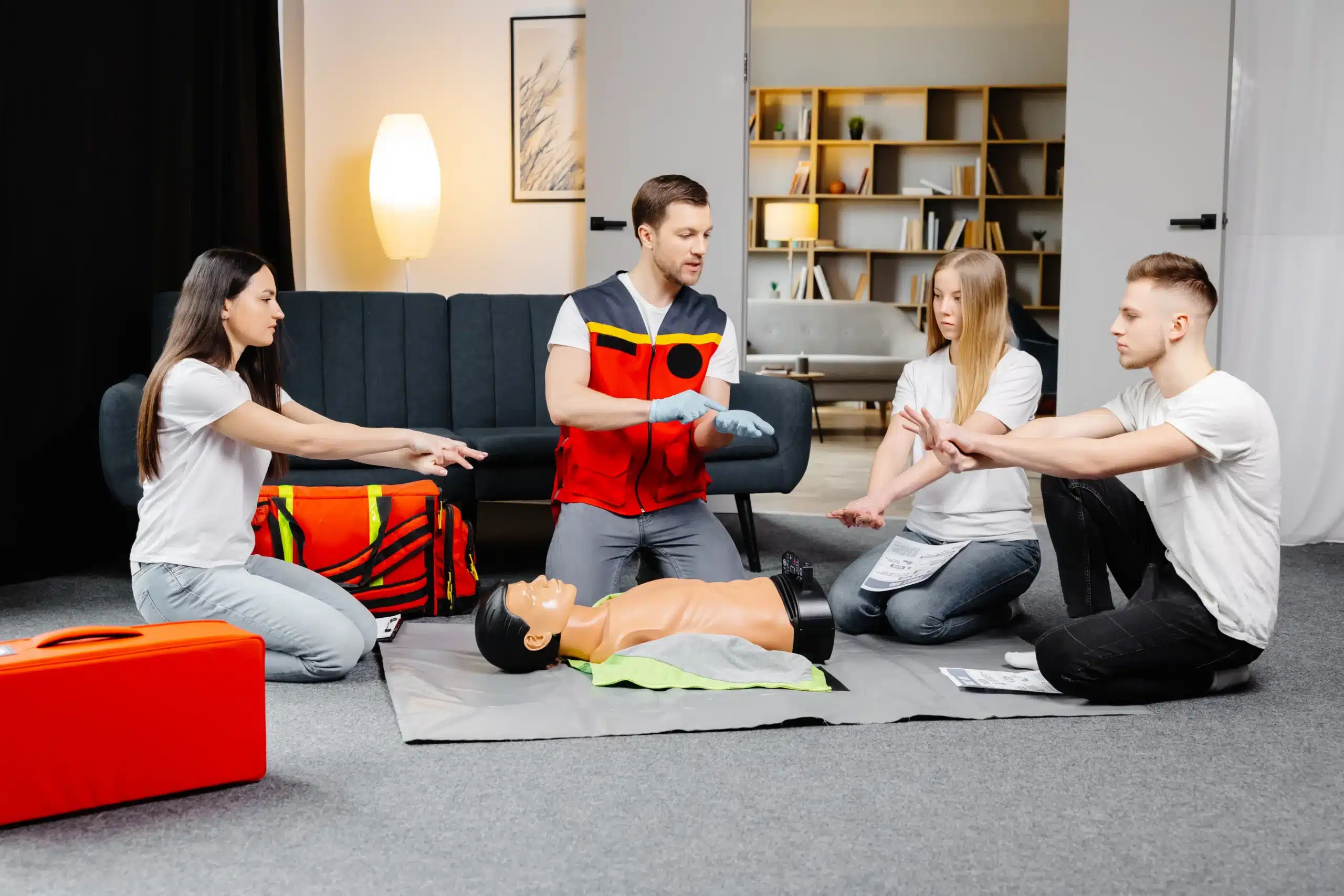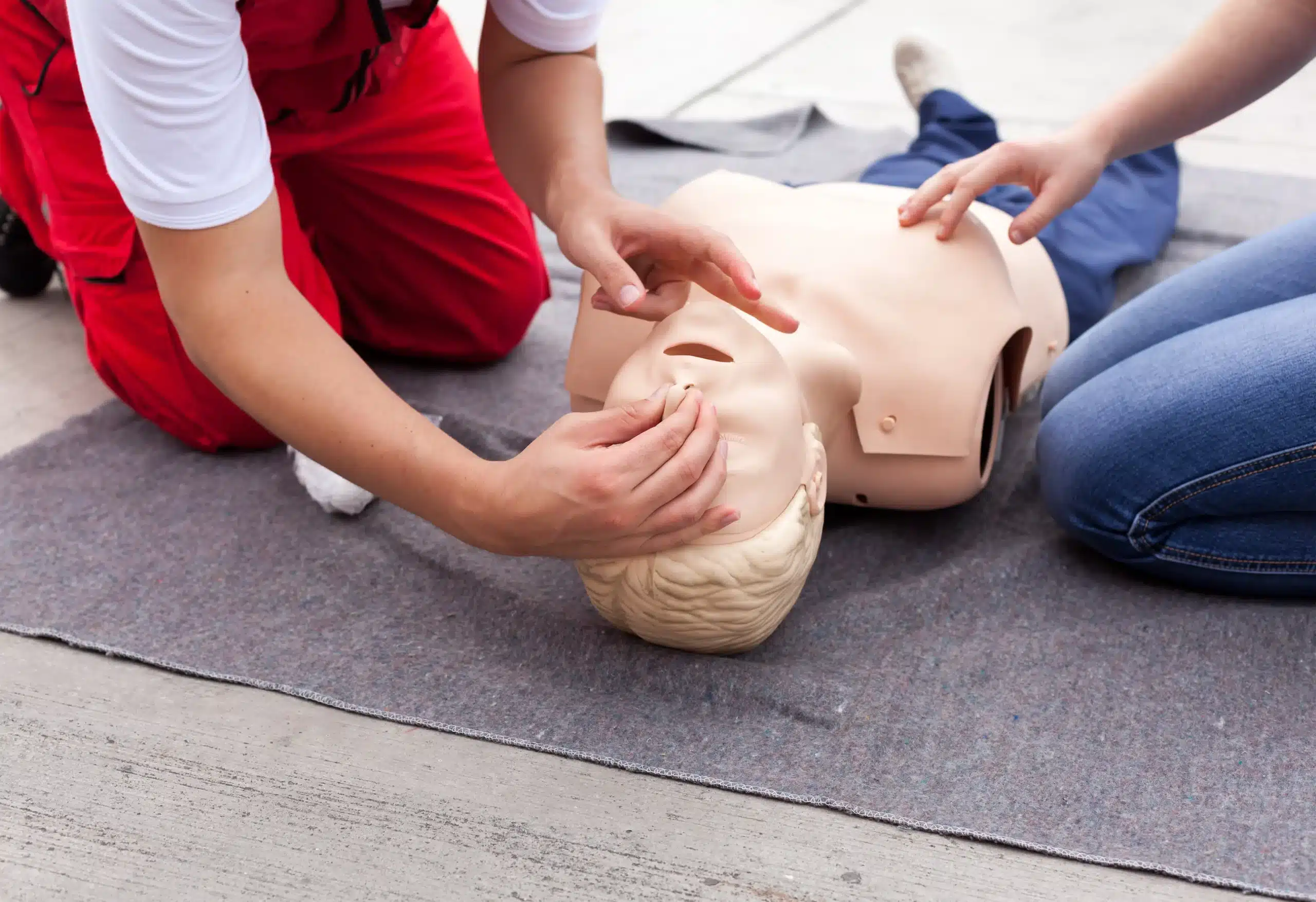Working in healthcare, especially in American Canyon, often means facing urgent situations where seconds count. For professionals like nurses, paramedics, and physicians, having advanced cardiac life support (ACLS) training isn’t just beneficial—it’s essential. ACLS empowers you with the knowledge and skills to confidently manage cardiovascular emergencies, from sudden cardiac arrest to strokes. This goes beyond basic CPR, providing a systematic approach to patient care during critical moments. This article explores the importance of ACLS, where to find training in American Canyon, and how this certification can significantly impact your career and the lives of your patients. We’ll cover everything from course content and costs to the benefits of certification and how to maintain your skills, ensuring you’re always prepared to provide the best possible care.
Key Takeaways
- ACLS is a vital skillset for healthcare providers: It provides the knowledge and practical training to manage complex cardiovascular emergencies, ultimately improving patient care and offering career advantages. Explore local training options in areas like Napa, American Canyon, and Vallejo.
- Select an ACLS course that meets your needs: Consider instructor qualifications, available resources, and scheduling flexibility when choosing a program. Ensure you have a current BLS certification, a key prerequisite for ACLS training.
- Keep your ACLS skills sharp: Certification is just the beginning. Regularly practicing your skills, taking refresher courses, and staying informed about the latest guidelines are essential for maintaining proficiency and delivering effective care during emergencies.
What is Advanced Cardiac Life Support (ACLS)?
What is ACLS?
Advanced Cardiovascular Life Support (ACLS) equips healthcare professionals with the skills to manage cardiovascular emergencies. It’s a set of clinical guidelines and protocols, focusing on life-threatening situations like cardiac arrest, stroke, and other respiratory emergencies. Think of it as a comprehensive toolkit, providing medical personnel with the knowledge and practical skills to stabilize and treat patients in these critical moments. This training goes beyond basic life support, covering advanced techniques and algorithms for effective intervention. For healthcare providers in American Canyon, finding a reliable ACLS certification course is a crucial step in career development.
Why is ACLS Important in Healthcare?
ACLS certification is essential, especially for those in emergency rooms, intensive care units, and other critical care settings. Many hospitals and healthcare institutions prioritize ACLS certification for their staff. It empowers healthcare providers to confidently manage complex emergencies, leading to better patient outcomes. Whether you’re a seasoned professional or new to healthcare, having this certification demonstrates a commitment to high-quality patient care and can lead to career advancement. The focus on teamwork and communication in ACLS training also strengthens the effectiveness of emergency response teams, ensuring coordinated and efficient care during critical situations.
Find ACLS Training in American Canyon
If you’re looking for ACLS training in American Canyon, you have several good options. Since American Canyon is close to Vallejo and Napa, expanding your search to these nearby cities gives you even more choices. Let’s take a look at a few providers and what they offer.
Safety Training Seminars
Safety Training Seminars offers a range of CPR and first aid certifications, including BLS, ACLS, and PALS. As an American Heart Association and EMSA-licensed provider, they offer classes daily (except Christmas and New Year’s) at locations across Northern California, or they can provide on-site training. This flexibility is helpful for busy professionals and groups.
NAPA CPR Classes
Napa CPR Classes offers resources and a helpful guide to ACLS courses in and around American Canyon. They emphasize the importance of choosing accredited providers with experienced instructors and scheduling that works for you. Their insights can help you make a smart decision about your training.
Always CPR Training
Always CPR Training offers a hybrid ACLS course that combines online learning with in-person skills sessions. This blended format lets you learn the material at your own pace and then practice essential skills like airway management and pharmacology in a hands-on setting.
Other Local Options
You’ll also find several other options for ACLS courses in nearby Vallejo. Each provider has its own advantages, whether it’s in-person, online, or hybrid formats, group discounts, or flexible scheduling. Researching providers like CPR Training Center and All Care Health Services can help you find the best fit.
ACLS Certification: Costs, Formats, & Schedules
Getting ACLS certified involves a few key considerations: cost, learning format, and scheduling. Let’s break down each of these.
Certification & Renewal Fees
Before committing to a class, it’s helpful to understand the costs. Initial ACLS certification in Vallejo is typically around $225, while renewals are approximately $150. Your ACLS certification is valid for two years. Check with your chosen provider, like Napa CPR Classes, for the most up-to-date pricing.
Training Formats: In-Person, Online, Hybrid
ACLS courses offer different learning formats to fit your needs. You can choose from in-person classes, online learning, or a hybrid approach. The American Heart Association clarifies that regardless of the format—blended learning or traditional classroom training—all approved courses teach the same science-based skills and result in the same AHA ACLS Course Completion Card. Consider what works best for your learning style. If you value hands-on instruction and interaction, in-person training might be a good fit. If you prefer flexibility and self-paced learning, an online or hybrid format could be more suitable. Napa CPR Classes offers insights into choosing the right format.
Flexible Scheduling
Busy schedules shouldn’t be a barrier to certification. Many training centers offer flexible scheduling. Safety Training Seminars provides classes daily (except major holidays) at various locations and on-site. They also offer classes every day of the week, including weekends, in Vallejo, according to the Vallejo Chamber of Commerce. This flexibility makes it easier to fit training into your life.
ACLS Certification Prerequisites
Before you jump into an Advanced Cardiac Life Support (ACLS) course, it’s helpful to understand the requirements. Knowing the prerequisites will make your registration process smoother and ensure you’re fully prepared to succeed.
BLS Certification
First things first, you’ll need a current Basic Life Support (BLS) for Healthcare Providers certification card from the American Heart Association (AHA). This is a fundamental requirement. BLS provides the essential CPR skills and basic life support knowledge that form the foundation for ACLS protocols. Think of it as building a house—you need a solid foundation before you can add the walls and roof. You can find more information about BLS certification and register for a course on our site.
Healthcare Provider Status
ACLS certification is designed for healthcare professionals who are directly involved in, or participate in the management of, cardiopulmonary arrest and other cardiovascular emergencies. This includes physicians, nurses, paramedics, respiratory therapists, and other medical personnel who may need to respond to these critical situations. If you’re a healthcare provider regularly working in emergency or critical care settings, ACLS certification is a vital tool for your career.
Course Preparation
While not a formal prerequisite, preparing for your ACLS course can significantly improve your learning experience. Reviewing basic cardiac rhythms, pharmacology, and airway management techniques can give you a head start. Think of it like studying for a test—the more prepared you are, the more confident you’ll feel and the better you’ll perform. Regularly refreshing your skills and knowledge, even after you’re certified, is key to maintaining proficiency in these life-saving techniques. We offer various refresher courses and resources to help you stay up-to-date. This ongoing commitment to learning not only benefits your career but, more importantly, enhances the quality of care you can provide to patients during emergencies.
Get ACLS Certified
Getting your ACLS certification is a multi-step process. Here’s what’s involved:
Course Content
ACLS certification courses cover advanced life support techniques for healthcare professionals. You’ll learn how to manage patients experiencing cardiac arrest and other cardiovascular emergencies. The curriculum typically includes recognizing and treating respiratory distress, implementing effective airway management, understanding electrocardiogram (ECG) rhythms, and administering medications. This training prepares you to make quick decisions and provide critical care in high-pressure situations.
Skills Practice & Simulations
ACLS courses go beyond lectures and textbooks. Hands-on practice and simulations are key components. You’ll work with training equipment and participate in realistic scenarios to develop the muscle memory and critical thinking skills necessary for real-world emergencies. These simulations often involve teamwork, mirroring the dynamics of a real resuscitation team. This practical experience builds confidence and proficiency in essential life-saving techniques.
Exams & Certification
After completing the course, you’ll need to pass both a written exam and a practical skills test. The written exam assesses your knowledge of ACLS principles and protocols. The practical exam evaluates your ability to perform the necessary skills in a simulated emergency. Once you pass both exams, you’ll receive your ACLS certification. Maintaining your certification requires regular renewal and continuing education to stay current with the latest guidelines.
Benefits of ACLS Certification
Getting your ACLS certification is more than just checking a box; it’s a significant step in your healthcare career. Whether you’re a nurse, physician, paramedic, or other healthcare provider,
Advance Your Career
ACLS certification demonstrates a commitment to excellence in patient care. It shows employers you have the advanced knowledge and skills to handle complex cardiovascular emergencies. Many healthcare institutions, like hospitals and clinics, prefer or even require ACLS certification for certain roles, especially in critical care settings. Earning your ACLS certification can open doors to new opportunities, increase your earning potential, and help you stand out from other candidates. For nurses, it’s a particularly valuable asset for career advancement.
Improve Patient Care
At its core, ACLS is about providing the best possible care for patients facing life-threatening cardiovascular events. The training provides a systematic approach to assessment, diagnosis, and treatment, allowing you to make quick, informed decisions under pressure. This translates to improved patient outcomes, reduced errors, and a higher standard of care. Having the confidence and competence to effectively manage these critical situations can make a real difference in a patient’s life.
Enhance Team Coordination
Responding to a cardiac arrest or other serious cardiovascular event requires a coordinated team effort. ACLS training emphasizes clear communication, defined roles, and efficient teamwork. Everyone on the team understands their responsibilities and how to work together seamlessly. This improved coordination enhances the effectiveness of the response and creates a more confident and supportive environment for the entire team. Improving your emergency response skills through effective training is crucial for any healthcare provider.
Choose the Right ACLS Training
Finding the right ACLS training course is crucial for both your learning experience and your career. Here’s what to consider:
Instructor Qualifications
Look for a training center with certified instructors who have significant real-world experience. Experienced instructors can offer practical insights and answer your questions effectively. Safety Training Seminars is an American Heart Association (AHA) Training Center, meaning their instructors meet the AHA’s rigorous standards. This ensures you receive high-quality instruction aligned with current guidelines.
Course Materials & Resources
ACLS certification involves advanced training designed for healthcare professionals to manage patients experiencing cardiac arrest and other cardiovascular emergencies. The HealthForce Training Center’s guide to ACLS Certification emphasizes how this training provides a solid foundation in ACLS principles and techniques. Ensure the course you choose includes up-to-date materials, resources, and equipment, including access to practice materials and simulations to enhance your learning.
Student Support
A supportive learning environment is key to a positive ACLS training experience. Consider factors like class size, instructor availability, and access to additional resources. Safety Training Seminars offers conveniently located ACLS courses, making training accessible for busy professionals.
Reputation & Reviews
Before choosing a course, research the training center’s reputation and read reviews. Positive feedback can give you confidence in the quality of the training. American Health Training highlights how ACLS training improves a healthcare professional’s ability to respond to complex, life-threatening emergencies. A reputable training center can significantly impact your career and your ability to provide effective patient care.
Maintain Your ACLS Certification
Keeping your ACLS skills sharp is crucial for any healthcare provider. It’s not a one-and-done deal. Staying current with the latest guidelines and techniques ensures you’re prepared to deliver the best possible care during emergencies.
Renew Your Certification
ACLS certification is valid for two years. To remain actively certified, you’ll need to complete an ACLS recertification course before your current certification expires. This refresher reinforces the core skills needed to manage cardiac arrest and other cardiovascular emergencies. Don’t let your certification lapse—stay ahead of the game and schedule your recertification in advance. Check with your employer or certifying body for specific renewal requirements.
Continuing Education
Beyond recertification, ongoing learning is key to maintaining proficiency in ACLS. Consider taking additional courses, attending workshops, or participating in online learning modules to expand your knowledge and refine your skills. Staying informed about the latest advancements in cardiovascular care can significantly impact patient outcomes.
Stay Updated
The medical field is constantly evolving, and ACLS guidelines are updated periodically. Make it a habit to review these updates and incorporate them into your practice. Staying current with the latest recommendations ensures you’re providing the most effective care. Resources like the AHA’s website offer valuable information on current guidelines and updates to ACLS protocols. Staying informed benefits your patients and demonstrates your commitment to professional development.
Apply ACLS Skills
Improve Emergency Response
Holding an ACLS certification goes beyond just letters after your name—it signifies a readiness to handle critical cardiovascular emergencies. It equips healthcare providers with the skills to assess a patient’s condition rapidly, make quick decisions under pressure, and administer life-saving treatment. This training translates to improved patient outcomes and a more effective emergency response. The technical knowledge you gain through ACLS certification empowers you to deliver superior care when it matters most.
Prepare for Real-Life Scenarios
ACLS courses don’t just cover theory; they delve into practical application. Through realistic simulations and case studies, you’ll gain experience managing various cardiac emergencies, from heart attacks and strokes to arrhythmias and cardiac arrest. This hands-on training builds your confidence and prepares you to apply your skills effectively in real-world situations. Practicing your skills and continuing your training through resources like real-life case studies are essential for maintaining proficiency and ensuring you’re always ready to respond.
Build Confidence
Mastering advanced life support techniques instills a sense of confidence that’s invaluable in high-stakes medical situations. Knowing you have the skills to handle complex emergencies empowers you to take decisive action and lead your team effectively. This confidence not only benefits your patients but also contributes to a more coordinated and efficient response from the entire medical team. ACLS certification is often a prerequisite for career advancement, demonstrating your commitment to providing high-quality patient care in critical situations.
Beyond ACLS Certification
Getting your ACLS certification is a huge accomplishment, but it’s not the finish line. Think of it as a solid foundation for building a career of confident and effective emergency care. Here’s how to make the most of your training long after you leave the classroom:
Practice & Refresher Courses
Regular practice is key to maintaining the sharp skills you gained during your ACLS training. Think of it like any other skill—if you don’t use it, you lose it. Refresher courses offer the perfect opportunity to brush up on critical concepts, revisit algorithms, and practice those life-saving interventions. This ongoing reinforcement keeps your skills fresh and helps you adapt to any updates in guidelines or protocols. Staying current with the latest advancements ensures you’re always prepared to deliver the best possible patient care. Consider scheduling refresher courses regularly to maintain your proficiency and confidence in emergency situations.
Integrate ACLS Skills
ACLS certification equips you with a powerful toolkit of knowledge and skills. The real value comes from integrating these skills into your daily practice. Look for opportunities to apply your ACLS knowledge in your workplace, whether it’s participating in mock codes, leading training sessions for your colleagues, or contributing to the development of emergency response protocols. By actively incorporating your ACLS skills into your routine, you’ll reinforce your knowledge and cultivate a mindset of preparedness that can make all the difference in a real emergency. This proactive approach strengthens your individual capabilities and contributes to a more prepared and responsive healthcare environment.
Build an Emergency-Prepared Culture
Beyond individual skills, fostering a culture of emergency preparedness within your team is essential. Openly discuss best practices, share lessons learned from simulations or real-life events, and encourage continuous learning among your colleagues. Creating a supportive environment where everyone feels empowered to contribute to emergency preparedness strengthens the entire team’s response capabilities. This collaborative approach ensures that everyone is on the same page and ready to act decisively when facing a critical situation. By working together to build a strong emergency-prepared culture, you contribute to a safer and more effective healthcare setting for both patients and providers.
Related Articles
- ACLS Courses in Vallejo: Your Complete Guide – Napa CPR Classes
- Online ACLS Classes in American Canyon: Your Guide – Napa CPR Classes
- ACLS Renewal in Napa: Your Complete Guide – Napa CPR Classes
- AHA ACLS Classes in Napa, CA – Napa CPR Classes
- CPR Certification in American Canyon: Your Guide – Napa CPR Classes
Frequently Asked Questions
Why is ACLS certification important for my healthcare career?
It’s a valuable asset, especially in roles requiring advanced life support skills. Many employers prefer or require it for positions in critical care settings like emergency rooms and intensive care units. It demonstrates your commitment to high-quality patient care and can open doors to career advancement. It also shows you have the training to handle complex cardiovascular emergencies, which can boost your confidence and improve patient outcomes.
What are the typical prerequisites for taking an ACLS course?
You’ll generally need a current BLS (Basic Life Support) for Healthcare Providers certification from the American Heart Association. ACLS builds upon the foundational skills taught in BLS, so it’s essential to have that baseline knowledge. Additionally, ACLS courses are designed for healthcare professionals who are likely to encounter and manage cardiovascular emergencies as part of their job.
How much does ACLS certification cost, and how long is it valid?
Costs can vary depending on the training center and location, but initial certification typically falls somewhere around $225, with renewals around $150. Certification is valid for two years. It’s always a good idea to check with your chosen provider for the most up-to-date pricing in your area.
What learning formats are available for ACLS courses?
You’ve got options! Many training centers offer in-person classes, online learning, or a hybrid approach that combines both. In-person classes provide hands-on practice and direct interaction with instructors, while online and hybrid formats offer more flexibility for those with busy schedules. Consider your learning style and preferences when choosing a format.
How can I maintain my ACLS certification and keep my skills sharp after completing the course?
Staying current is key. Make sure you renew your certification every two years by taking a recertification course. Beyond that, consider regular practice, refresher courses, and continuing education opportunities to keep your skills and knowledge up-to-date. The medical field is constantly evolving, so ongoing learning is essential for providing the best possible patient care.
